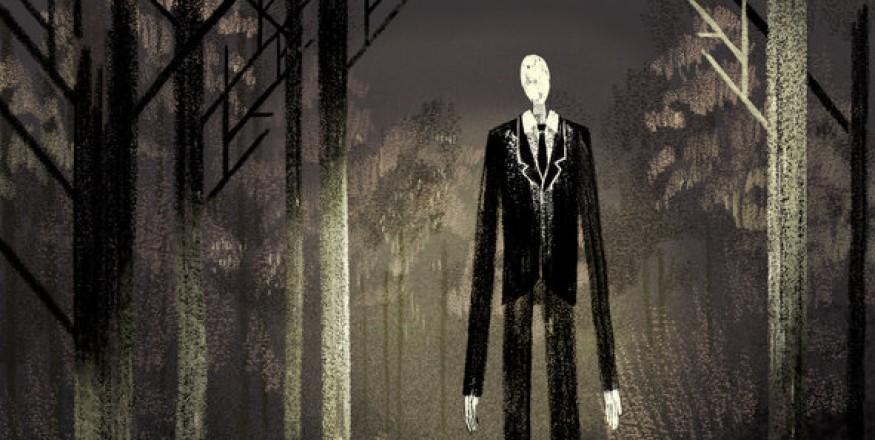It started in the quiet town of Windhaven. The kind of place where everyone knew each other, where locks on doors were an afterthought, and life ambled along as predictably as the seasons. That is, until the children appeared.111Please respect copyright.PENANAE3tzke1h84
Eleanor McGrady, a widow who lived alone at the edge of town, was the first to report it. She described a knock at her door late one evening, sharp and insistent. When she opened it, two children stood on her porch. A boy and a girl, no older than ten. They were pale, dressed in old-fashioned clothes, and their eyes—their eyes were pitch black, void of whites or irises.
"Can we come in?" the boy had asked. His voice was flat, devoid of the sing-song cadence typical of children.
Eleanor’s instincts screamed at her to slam the door, but her politeness held her back. “It’s late,” she said, her voice trembling. “Where are your parents?”
The children didn’t answer. They only stood there, waiting. Unease prickled at her skin. Finally, she mumbled an apology and shut the door. That night, she didn’t sleep. She could feel their presence outside, could hear the faint scratching at her windows. By morning, they were gone, but the sense of dread lingered.
Word spread quickly. Others in Windhaven began to share similar encounters. The black-eyed children always came at night, always in pairs. They would knock and ask to be let inside. Their voices were monotone, their words repetitive. “We need to use your phone,” they’d say. Or, “We’re lost. Can we come in?” But something about their presence was deeply wrong. Those who turned them away felt an overwhelming relief. Those who let them in, however, never spoke of it. They disappeared, their homes left eerily quiet and abandoned.
Sheriff Donovan tried to investigate. He visited the homes of those who had vanished, but there were no signs of struggle, no clues. It was as if the residents had simply walked out of their lives. Frustrated and desperate, he set up a patrol one night, determined to catch the children in the act.
It was nearly midnight when he saw them. Two small figures standing at the door of the old Thomason house, where a young couple had recently vanished. Donovan stepped out of his cruiser, flashlight in hand.
“Hey!” he called. The children turned to face him. Their black eyes reflected the beam of his flashlight, absorbing it like a void. His breath caught in his throat. “What are you doing out here?”
“We’re lost,” the girl said, her voice devoid of emotion. “Can you help us?”
Donovan’s instincts screamed at him to run, but he was a man of duty. “Where are your parents?” he asked, forcing authority into his tone.
The boy tilted his head, almost amused. “Let us in.”
Donovan tightened his grip on the flashlight. “You need to come with me. We’ll find your parents at the station.”
The children didn’t move. The girl smiled, and it was the most unsettling thing Donovan had ever seen. Slowly, they began to walk toward him. The air around them grew heavy, oppressive. His chest tightened, and a ringing filled his ears. He stumbled backward, gasping for breath. Then, just as suddenly, they were gone.
Shaken, Donovan returned to his cruiser. But the encounter left him changed. That night, he dreamt of the children standing at the foot of his bed, their black eyes staring into his soul. When he woke, he found scratches on his bedroom window, though he lived on the second floor.
The encounters grew more frequent. People reported strange phenomena after the children visited. Lights flickered inexplicably. Pets went missing. Whispers echoed through empty rooms. The sense of being watched became a constant companion. The town’s once-vibrant community grew silent and paranoid. Windows were boarded up, doors reinforced. But the children always found a way to knock.
Then, one day, Eleanor McGrady’s house burned to the ground. Neighbors swore they saw the black-eyed children standing in the yard, watching the flames consume the building. When the fire was extinguished, no remains were found inside. Eleanor was gone, like the others.
By now, Windhaven was a ghost town. Those who could leave did so. Those who stayed became reclusive, their fear turning to despair. Donovan, now gaunt and haunted, made one final attempt to confront the children. Armed with a shotgun and resolve born of desperation, he stationed himself at the abandoned church on the edge of town, a place the children seemed to avoid.
That night, they came to him. He heard the knock at the church door, a sound that echoed through the empty halls. Slowly, he approached, weapon raised.
“We need to come in,” a child’s voice called from the other side.
“You’re not welcome here,” Donovan said, his voice trembling but firm.
The door rattled. The air grew icy. Donovan’s grip tightened on the shotgun. He fired through the door, the sound deafening in the confined space. When the echo faded, there was silence.
But when he opened the door, there was nothing. Just the faint outline of small footprints in the dirt, leading away into the darkness.
Donovan was never seen again. Some say he left town like the others. Some say the children finally got to him. Windhaven remains abandoned, a place whispered about in neighboring towns. They say if you go there at night, you can still hear the knocks. And if you’re foolish enough to open the door, you’ll see them standing there, their black eyes staring through you, waiting to be let in.
And if you do… well, no one knows what happens next. No one who’s let them in has ever lived to tell the tale.
ns18.217.161.30da2





















